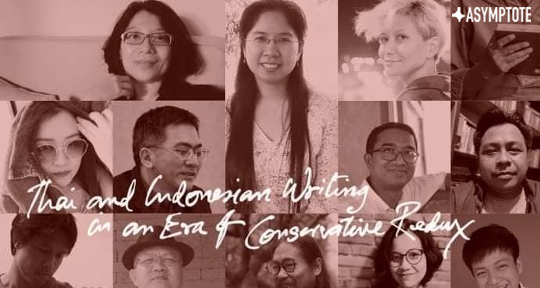Although the Thai and Indonesian languages have no linkages and belong to quite different linguistic ancestries, both have long had a fatalistic image of a frog who lives all its life under half a coconut shell.
—Benedict Anderson, A Life Beyond Boundaries
What can two nations mired in their own peculiar chauvinisms learn from each other? How does a country take a long, hard look at itself without losing the exercise of hard-fought internationalism? Earlier this month, the conference “Thai and Indonesian Writing in an Era of Conservative Redux” yielded certain insights to these questions via literary means. Featuring twenty-one speakers and conducted entirely bilingually in Thai and Indonesian, the conference is a colossal collaboration between the School of Political Science and Laws, Walailak University, Thailand, and the Faculty of Letters, State University of Malang, Indonesia.
Exemplifying the critical spirit of this “South-South” comparison, Indonesia’s keynote speaker Linda Christanty shared a personal anecdote: on a visit to Thailand, she went to a cinema and was prompted to stand up for the royal anthem. The Indonesian writer and journalist had then felt proud that Indonesians, in contrast, did not need to stand up to pay respects to some royalty from Java. However, this pride was nullified when, in 2019, the Indonesian Minister of Youth and Sports Affairs—enamored with the Thai monarchy—came up with a proposal: requiring moviegoers to stand up before the images of Yogyakarta Sultan Hamengkubuwono X and to sing along to the national anthem. Even though the proposal didn’t become policy, this anecdote is an important reminder that one cannot afford national smugness when authoritarianism spreads internationally, as it increasingly does.
Neither does the conference dwell on the opposite of smugness—i.e. the grass is greener syndrome—otherwise prevalent in international comparisons from the standpoint of a terrible national situation, especially vis-à-vis the West. Even if the grass on the other side is really greener, the vital point of comparison remains first and foremost to find out exactly how it has become so not-green where one is.
Thai scholar and critic Chusak Pattarakulvanit concurs with Linda Christanty that the so-called “conservative redux” may be more accurately described as a re-strengthening of something that never went away. In his diagnosis of the phenomenon where formerly leftist or pro-democracy writers enjoy a “free right turn,” Chusak identifies three structural contributors: recuperation of subversive works, institutionalization via patronage, and fetishization. The last entails the reduction of literary work—with its inherent capacity to go against convention—to a single prescribed reading, as well as the fixation on a certain “resistant” aesthetics that mutates it into a sacred thing (khong), divorced from actually existing social conditions. READ MORE…

